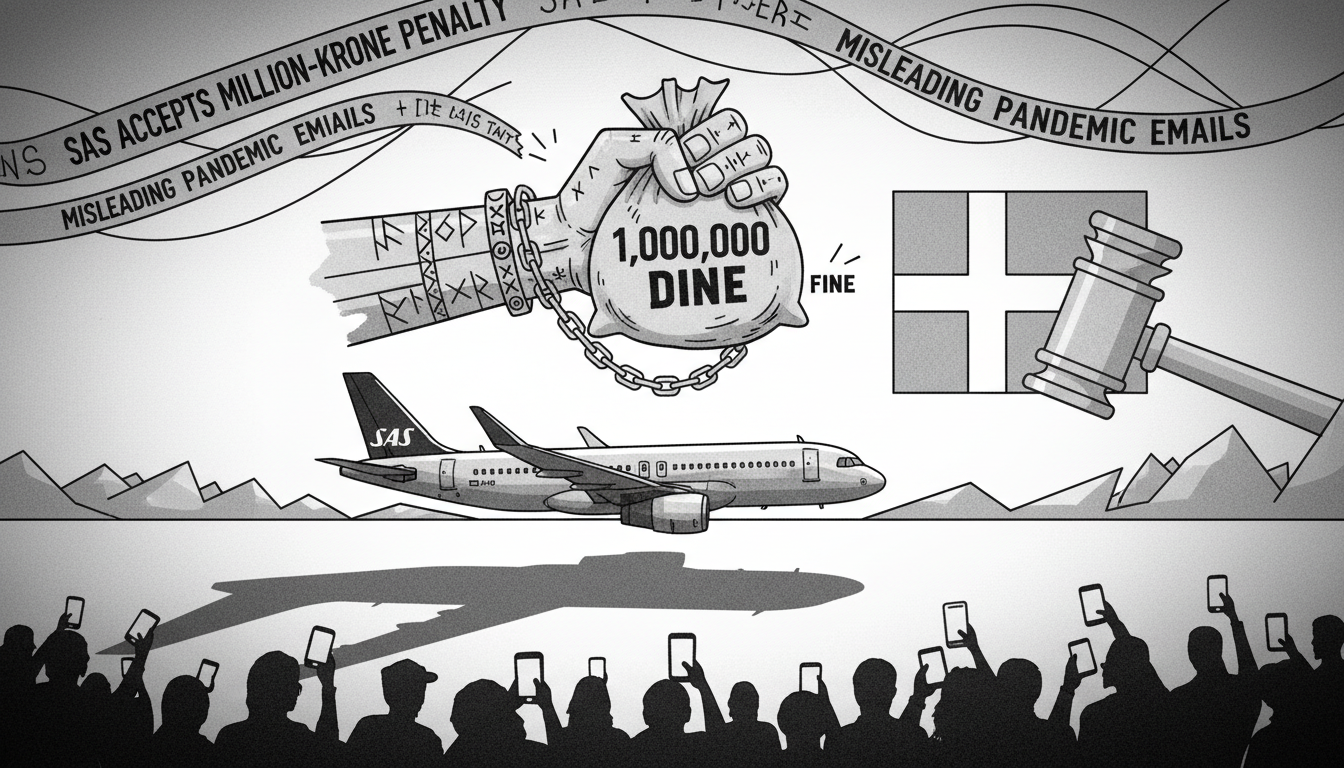Scandinavian Airlines has accepted a substantial fine for misleading thousands of passengers during the pandemic travel disruptions. The airline will pay one million kroner following a consumer protection case about flight change communications. This situation reveals important lessons about corporate responsibility during crises and consumer rights protection in Denmark's regulated market.
During the pandemic travel shutdown, SAS sent 18,201 emails to customers with booked flights. These messages explained options for changed itineraries but created confusion about refund eligibility. Many passengers believed their flights were canceled and requested full refunds through links in the communications. Some received complete reimbursements while others got partial amounts based on ticket types.
The Consumer Ombudsman determined SAS violated marketing laws through misleading communications. Authorities argued the airline's messaging created false impressions about cancellation status. Three disappointed customers testified in Copenhagen City Court about canceled Italy trips, including one man who missed seeing Christian Eriksen play football in Rome. The case highlights how crisis communications can cross into consumer protection violations.
Denmark's consumer protection system demonstrated its effectiveness through this enforcement action. The country maintains strong safeguards against corporate misinformation, with the Consumer Ombudsman having authority to escalate cases to police and prosecution when violations occur. This systematic approach ensures businesses face consequences for misleading practices, even during extraordinary circumstances like global pandemics.
SAS initially defended its position by claiming customers misunderstood the emails and had canceled voluntarily. The airline noted it offered better cancellation terms than required. However, prosecutors agreed with the Consumer Ombudsman's assessment that the communications constituted misleading marketing. The case proceeded through two court hearings before the airline accepted the verdict without appeal.
This resolution matters for Denmark's travel industry and consumer confidence. The country's welfare system depends on fair business practices and transparent corporate communications. When major companies like SAS operate with clarity and accountability, it strengthens public trust in Denmark's social market economy. The case also shows how Danish institutions protect individuals against corporate power imbalances.
Many affected customers have since received full refunds, but the court maintained the violation occurred when the emails were originally sent. The airline's decision not to appeal suggests recognition of its communication failures during the pandemic crisis. This outcome reinforces that even during global emergencies, Danish companies must maintain truthful communications with consumers.

